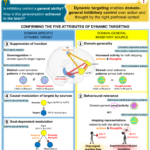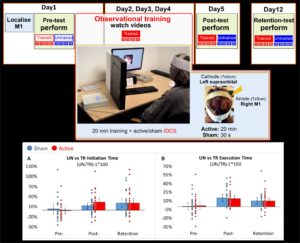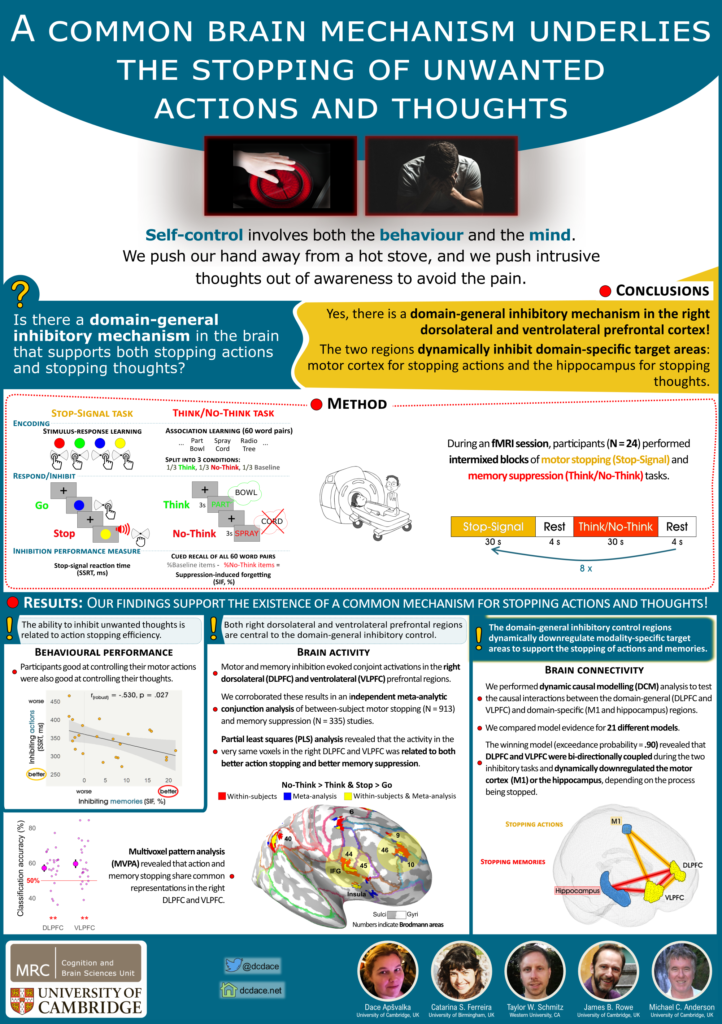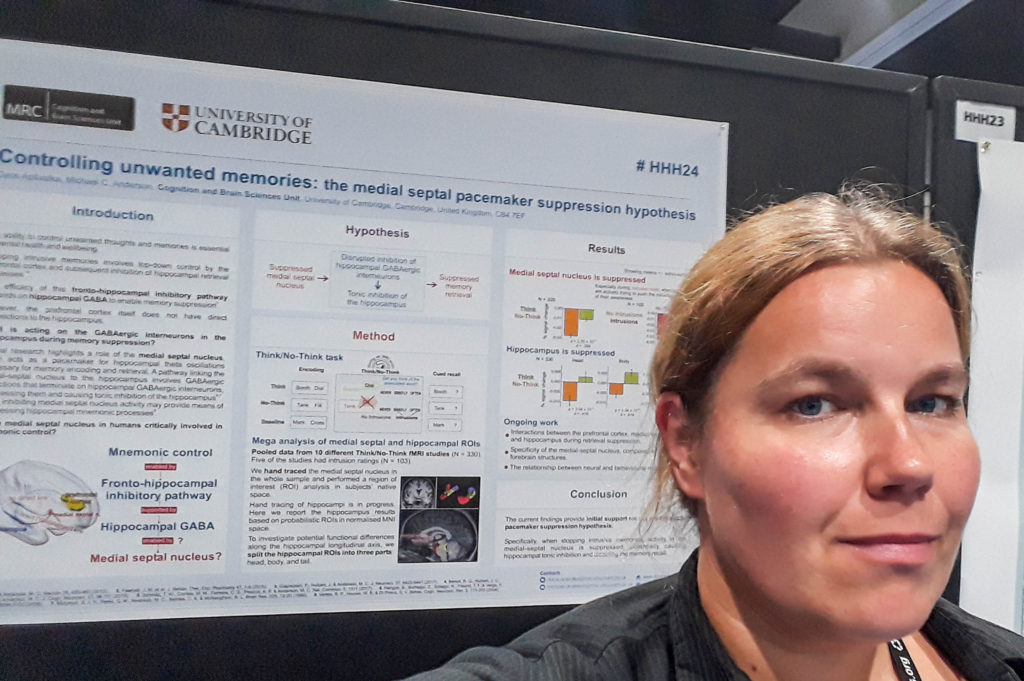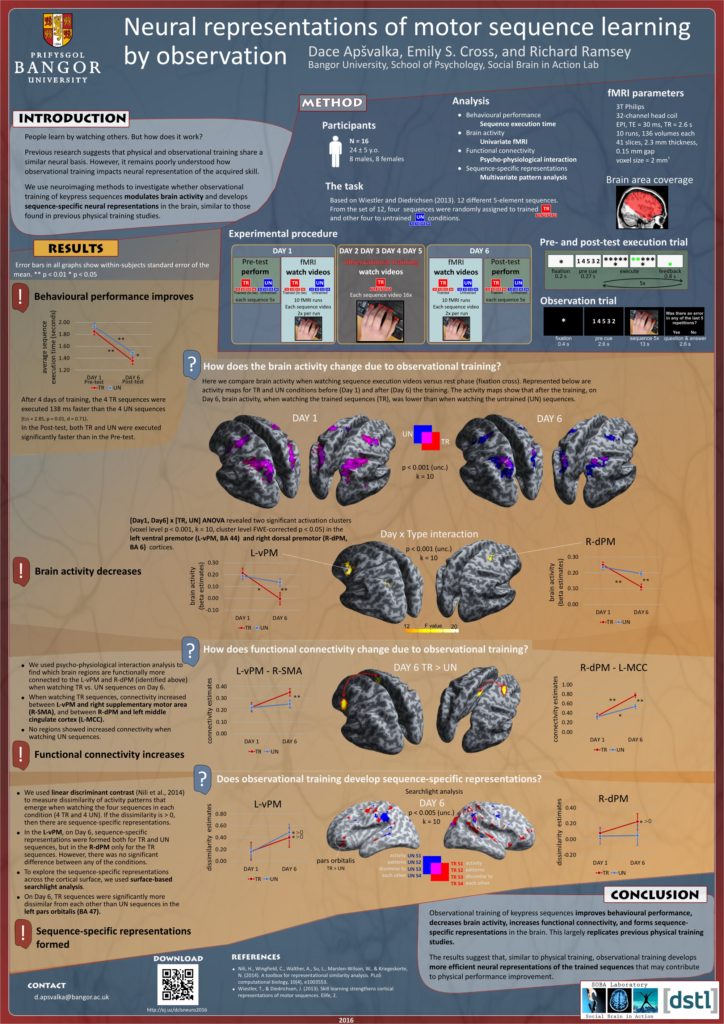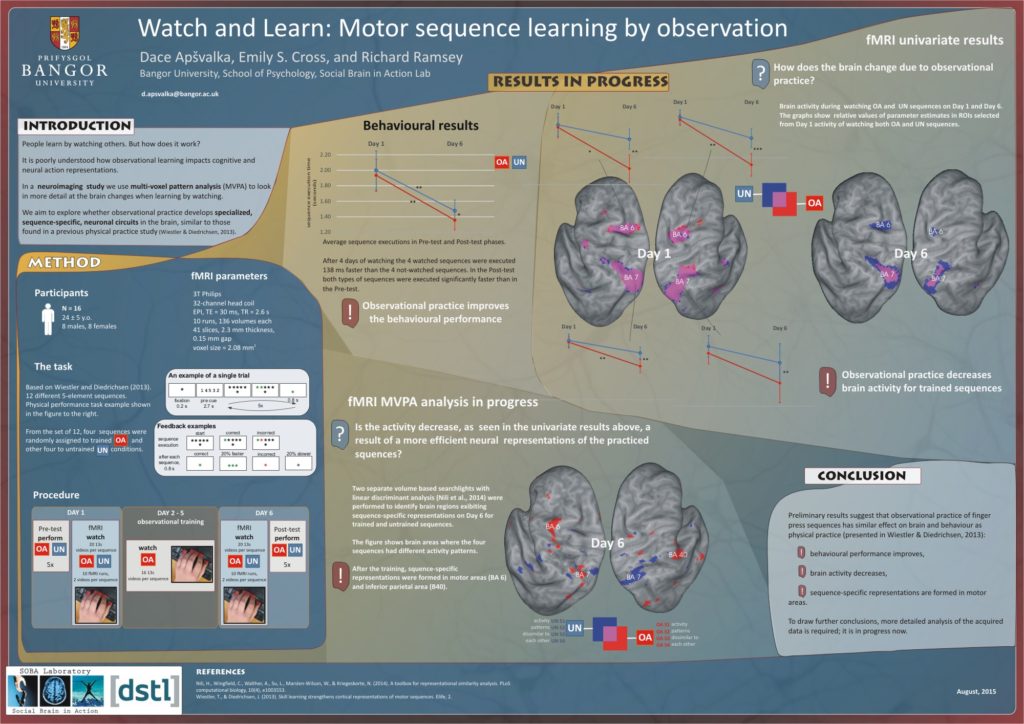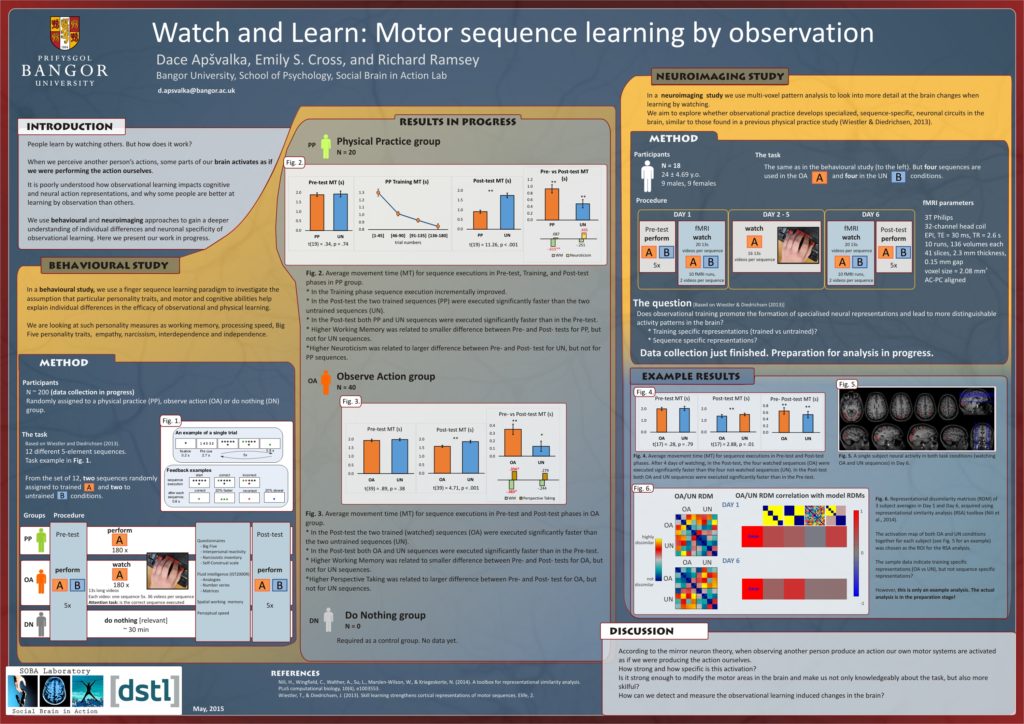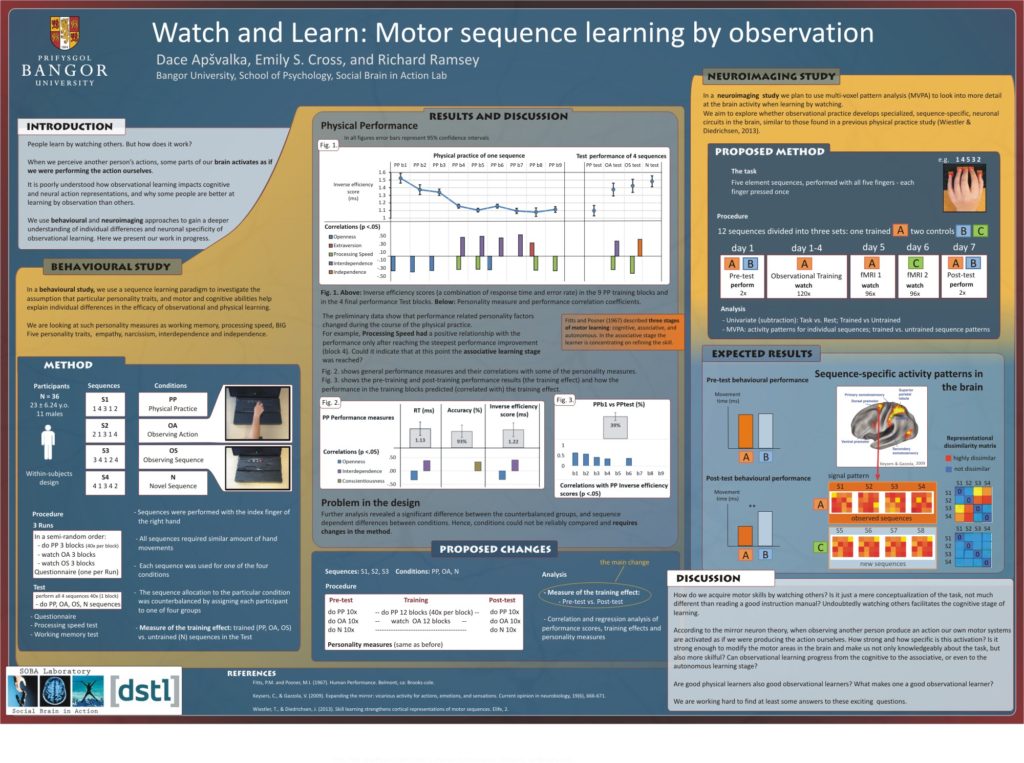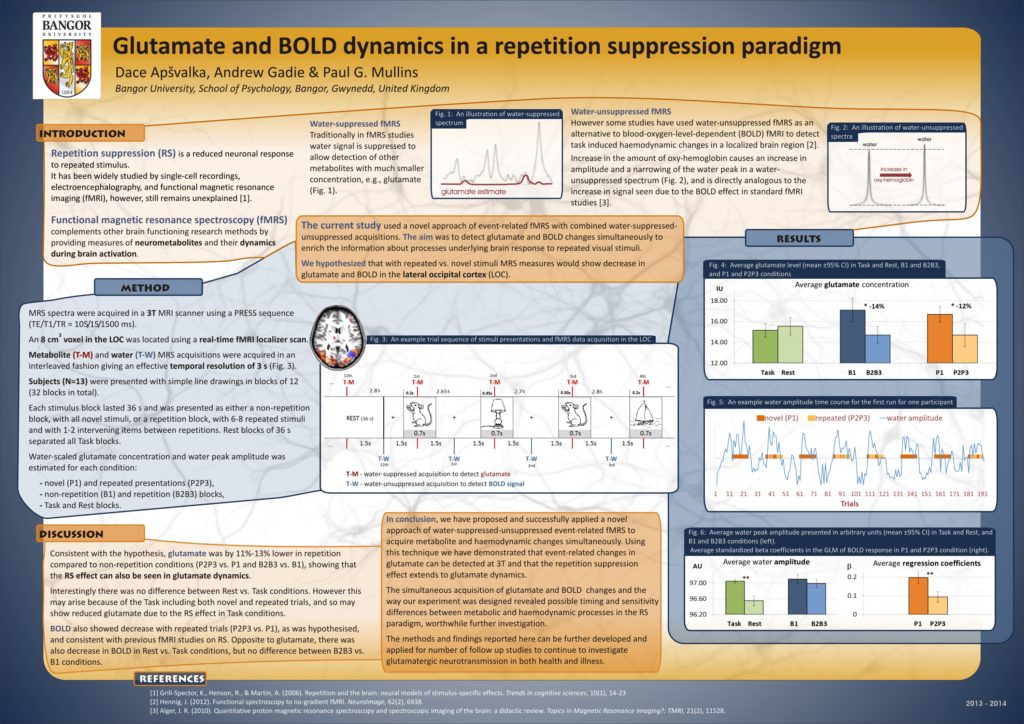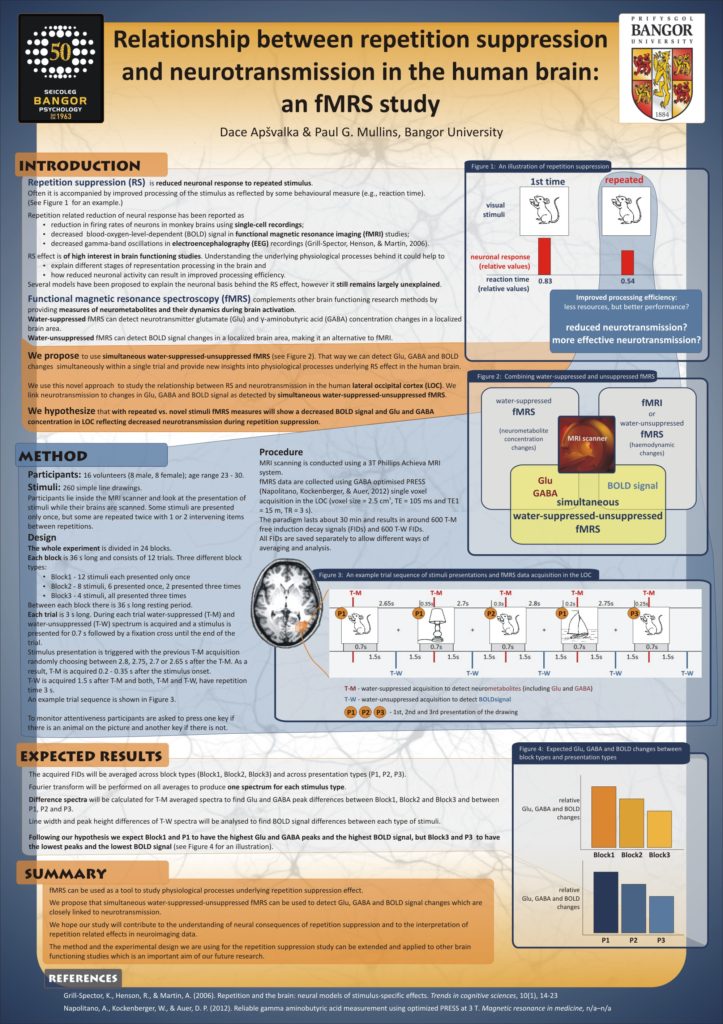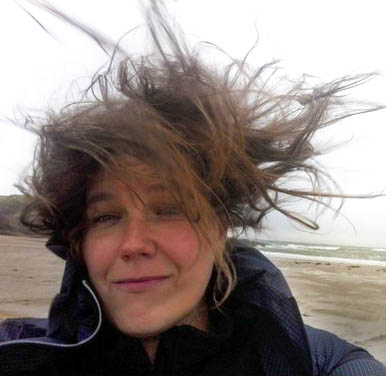
Dr Dace Apšvalka
Cognitive Neuroscientist | System AnalystOriginally educated in Computer Science and trained as System Analyst. Transitioned into Cognitive Neuroscience.
Currently working at the University of Cambridge MRC Cognition and Brain Sciences Unit.
My career path in 6 min.
Latest News
Latest Blog Post
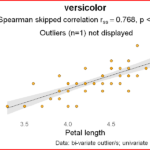 Which correlation method to use?March 15, 2022Which correlation method to use for my data? Pearson's correlation or a robust correlation method to account for outliers or non-normality? A while ago, I wrote an R script to flexibly apply the correlation method based on the data at hand. I have found this script very useful for myself. So, I decided to share it with others. I hope you find it helpful too!
Which correlation method to use?March 15, 2022Which correlation method to use for my data? Pearson's correlation or a robust correlation method to account for outliers or non-normality? A while ago, I wrote an R script to flexibly apply the correlation method based on the data at hand. I have found this script very useful for myself. So, I decided to share it with others. I hope you find it helpful too!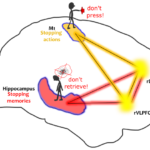 Stopping unwanted thoughts and actions share a common inhibitory control mechanism in the brainJanuary 23, 2022
Stopping unwanted thoughts and actions share a common inhibitory control mechanism in the brainJanuary 23, 2022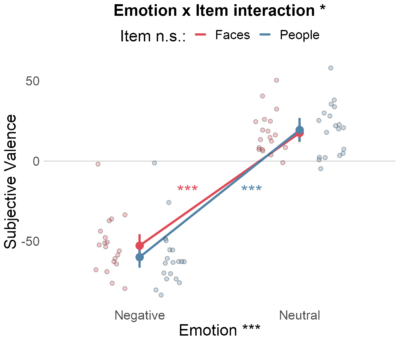 2×2 Repeated Measures ANOVA R functionOctober 12, 2020
2×2 Repeated Measures ANOVA R functionOctober 12, 2020
Publications
See Google Scholar for a complete and most up to date list of publications.
2022
Over the last two decades, inhibitory control has featured prominently in accounts of how humans and other organisms regulate their behaviour and thought. Previous work on how the brain stops actions and thoughts, however, has emphasised distinct prefrontal regions supporting these functions, suggesting domain-specific mechanisms. Here we show that stopping actions and thoughts recruits common regions in the right dorsolateral and ventrolateral prefrontal cortex to suppress diverse content, via dynamic targeting. Within each region, classifiers trained to distinguish action-stopping from action-execution also identify when people are suppressing their thoughts (and vice versa). Effective connectivity analysis reveals that both prefrontal regions contribute to action and thought stopping by targeting the motor cortex or the hippocampus, depending on the goal, to suppress their task-specific activity. These findings support the existence of a domain-general system that underlies inhibitory control and establish Dynamic Targeting as a mechanism enabling this ability.
2019
Humans have a remarkable ability to learn by watching others, whether learning to tie an elaborate knot or play the piano. However, the mechanisms that translate visual input into motor skill execution remain unclear. It has been proposed that common cognitive and neural mechanisms underpin learning motor skills by physical and observational practice. Here we provide a novel test of the common mechanism hypothesis by testing the extent to which certain individual differences predict observational as well as physical learning. Participants (N = 92 per group) either physically practiced a five-element key-press sequence or watched videos of similar sequences before physically performing trained and untrained sequences in a test phase. We also measured cognitive abilities across participants that have previously been associated with rates of learning, including working memory and fluid intelligence. Our findings show that individual differences in working memory and fluid intelligence predict improvements in dissociable aspects of motor learning following physical practice, but not observational practice. Working memory predicts general learning gains from pre- to post-test that generalise to untrained sequences, whereas fluid intelligence predicts sequence-specific gains that are tied to trained sequences. However, neither working memory nor fluid intelligence predict training gains following observational learning. Therefore, these results suggest limits to the shared mechanism hypothesis of physical and observational learning. Indeed, models of observational learning need updating to reflect the extent to which such learning is based on shared as well as distinct processes compared to physical learning. We suggest that such differences could reflect the more intentional nature of learning during physical compared to observational practice, which relies to a greater extent on higher-order cognitive resources such as working memory and fluid intelligence.
2018
Learning new skills by watching others is important for social and motor development throughout the lifespan. Prior research has suggested that observational learning shares common substrates with physical practice at both cognitive and brain levels. In addition, neuroimaging studies have used multivariate analysis techniques to understand neural representations in a variety of domains including vision, audition, memory and action, but few studies have investigated neural plasticity in representational space. As such, although movement sequences can be learned by observing other people’s actions, a largely unanswered question in neuroscience is how experience shapes the representational space of neural systems.
Here, across a sample of male and female participants, we combined pre- and post-training fMRI sessions with six days of observational practice to examine whether the observation of action sequences elicits sequence-specific representations in human frontoparietal brain regions and the extent to which these representations become more pronounced with observational practice. Our results showed that observed action sequences are modelled by distinct patterns of activity in frontoparietal cortex and that such representations largely generalise to very similar, but untrained, sequences. These findings advance our understanding of what is modelled during observational learning (sequence-specific information), as well as how it is modelled (reorganisation of frontoparietal cortex is similar to that previously shown following physical practice). Thus, on a more fine-grained neural level than demonstrated previously, we show the representational structure of how frontoparietal cortex maps visual information onto motor circuits to order to enhance motor performance.
When learning a new motor skill, we benefit from watching others. It has been suggested that observation of others’ actions can build a motor representation in the observer, and as such, physical and observational learning might share a similar neural basis. If physical and observational learning share a similar neural basis, then motor cortex stimulation during observational practice should similarly enhance learning by observation as it does through physical practice. Here, we used transcranial direct-current stimulation (tDCS) to address whether anodal stimulation to M1 during observational training facilitates skill acquisition. Participants learned keypress sequences across four consecutive days of observational practice while receiving active or sham stimulation over M1. The results demonstrated that active stimulation provided no advantage to skill learning over sham stimulation. Further, Bayesian analyses revealed evidence in favour of the null hypothesis across our dependent measures. Our findings therefore provide no support for the hypothesis that excitatory M1 stimulation can enhance observational learning in a similar manner to physical learning. More generally, the results add to a growing literature that suggests that the effects of tDCS tend to be small, inconsistent, and hard to replicate. Future tDCS research should consider these factors when designing experimental procedures.
2017
Learning by observation is a natural way of acquiring new skills. Previous research suggests that physical and observational training share a similar neural basis. However, it remains poorly understood to what extent observational training affects neural representations of the acquired skill and what factors influence the training effect. Employing a keypress sequence learning paradigm and brain imaging, brain stimulation, and behavioural methods we investigated three parallel questions to help to provide a more comprehensive and integrative perspective on motor skill learning through observation and how it compares to previous findings on learning by doing. In Study 1 (Chapter 2) we investigated whether action observation establishes movement-sequence-specific neural representations that become more distinct with observational practice as reported in a previous physical practice study. In Study 2 (Chapter 3) we investigated whether non-invasive brain stimulation could facilitate observational practice effects, as stated for learning through physical practice. Finally, in Study 3 (Chapter 4) we examined whether individual differences in learning through observation could be explained by the same cognitive abilities and personality characteristics as in learning by physical practice. Overall, across the three studies, we found that same as physical practice, the observational practice provides behavioural benefits on motor skill acquisition. Furthermore, same as physical performance, action observation establishes distinct sequence-specific activity patterns in premotor and parietal brain areas. However, unlike following the physical practice, the sequence-specific activity patterns did not become more specialised following observational practice. Moreover, unlike with physical practice, anodal transcranial direct current stimulation over primary motor cortex during observational practice provided no benefits for motor skill acquisition through observation. Also, it appears that cognitive processes play a different role in learning by observation than in learning by doing. Perhaps although deliberate cognitive processes are involved in observational learning, the limited aspect of hypothesis-testing makes observational learning itself more implicit than explicit in its nature.
2015
Apšvalka, D., Gadie, A., Clemence, M., & Mullins, P. G. (2015). Event-related dynamics of glutamate and BOLD effects measured using functional magnetic resonance spectroscopy (fMRS) at 3 T in a repetition suppression paradigm. Neuroimage, 118, 292-300. https://doi.org/10.1016/j.neuroimage.2015.06.015
Proton MR spectroscopy (1H-MRS) complements other brain research methods by providing measures of neurometabolites noninvasively in a localized brain area. Improvements in MR scanner technologies, and data acquisition and analysis methods should allow functional 1H-MRS (fMRS) to measure neurometabolite concentration changes during task-induced brain activation. The aim of the current study was to further develop event-related fMRS at 3 T to investigate glutamate dynamics in response to repetition suppression. A secondary aim was to investigate the relationship between blood-oxygen-level-dependent (BOLD) responses and glutamate dynamics in the same paradigm at the same time. A novel approach of interleaved water-suppressed (metabolite) and unsuppressed (water) fMRS was used to simultaneously detect the event-related dynamics of glutamate and BOLD signal to repetition suppression in the lateral occipital cortex of thirteen (N = 13) volunteers. On average, 1H-MRS-visible glutamate increased after novel visual stimuli presentations by 12% and decreased by 11–13% on repeated compared to novel presentations. The BOLD signal, as measured by water peak amplitude changes, showed significant difference between Task and Rest trials, and, on a GLM based analysis of the time series, demonstrated a significant difference between the novel and repeated trials, however appeared to be decoupled from the glutamate response as no correlation was found between the two. These results are the first demonstration that reductions in neuronal activity typical of repetition suppression effects are reflected by reduced glutamatergic and BOLD measures, that glutamate and BOLD responses may not be coupled as previously thought, and that these changes and relationships can be measured simultaneously using event-related fMRS at 3 T.
Publications in the field of Information Systems
Book Chapters (2)
Apshvalka, D., Donina, D., & Kirikova, M. (2009). Understanding the problems of requirements elicitation process: A human perspective. In W. Wojtkowski et al. (Eds.), Information Systems Development: Challenges in Practice, Theory, and Education (Vol. 1, pp. 211–223). Boston, MA: Springer US. doi:10.1007/978-0-387-68772-817
Apshvalka, D., & Wendorff, P. (2006). Reflections on the body of knowledge in Software Engineering. In A. G. Nilsson et al. (Eds.) Advances in Information Systems Development: Bridging the Gap between Academia and Industry (pp. 995-1006). Boston, MA: Springer US. doi:10.1007/978-0-387-36402-585
Conference Proceedings (9)
Apshvalka, D., Donina, D., & Kirikova, M. (2008, October). Foresight process modelling. In Scientific proceedings of Riga Technical University, Computer Science, Applied Computer Systems. Riga, Latvia (Vol. 34, pp. 102-112). ISSN 1407-7493.
Apshvalka, D. (2007, October). Challenges in modelling artificial human-like agents. In Scientific proceedings of Riga Technical University, Computer Science, Applied Computer Systems. Riga, Latvia (Vol. 30, pp. 76-84). ISSN 1407-7493.
Wendorff, P., & Apshvalka, D. (2005, September). The Knowledge Management strategy of Agile Software Development. In D. Remenyi (Ed.), Proceedings of the 6th European Conference on Knowledge Management (ECKM). Limerick, Ireland (pp. 607 – 614).
Apshvalka, D., & Wendorff, P. (2005, September). A Framework of Personal Knowledge Management in the context of Organisational Knowledge Management. In D. Remenyi (Ed.), Proceedings of the 6th European Conference on Knowledge Management (ECKM). Limerick, Ireland (pp. 34-41).
Apshvalka, D., & Grundspenkis, J. (2005, August). Personal Knowledge Management and intelligent agent perspective. In Pre-conference Proceedings of the 14th International Conference on Information Systems Development. Karlstad, Sweden (pp. 219-230).
Apshvalka, D., & Grundspenkis, J. (2005, May). Personal and Organizational Knowledge Management as a driving force for Business Process effectiveness. In Information Technologies for Business 2005, Proceedings of the International Conference. Kaunas, Lithuania (pp. 9 – 14).
Wendorff, P., & Apshvalka, D. (2005, April). Human Knowledge-Management and decision-making in Software Development method selection. In R. Petrasch et al. (Eds), Entscheidungsfall Vorgehensmodell (Proceedings of the 12th Annual Workshop of the German Informatics Society Special Interest Group WI-VM), Berlin, Germany (pp. 143-157).
Apshvalka, D. (2004, November). Personal Knowledge Management. In D. Remenyi (Ed.), Proceedings of the 11th European Conference on Information Technology Evaluation (ECITE). Amsterdam, Netherlands (pp. 17-22).
Apshvalka, D., & Grundspenkis, J. (2003, October). Making organisations act more intelligently in the framework of the Organizational Knowledge Management system. In Scientific proceedings of Riga Technical University, Computer Science, Applied Computer Systems. Riga, Latvia (Vol. 17, pp. 72-82).
Presentations
Talks

December 4. Cambridge Cognitive Neuroscience Methods Day, Cambridge, UK
Challenges of laminar fMRI.
March 28. Cognitive Neuroscience Society (CNS), San Francisco, USA
A Common Brain Mechanism for Stopping Unwanted Actions and Memories.
January 7. Experimental Psychology Society, Michael C. Anderson Mid-Career Prize Symposium, Online
A common brain mechanism for stopping unwanted actions and memories.
December 6. A guest lecture at Riga Technical University, Business Informatics programme, Knowledge Management Systems module, Online
The Importance of Forgetting in Knowledge Management.
October 2. 11th Annual Meeting of the Brazilian Institute of Neuropsychology and Behavior (IBNeC), Online
Fronto-hippocampal pathways underlying control over unwanted memories.
March 10. MRC Cognition and Brain Sciences Unit Wednesday Lunchtime Seminar, Online
Fronto-hippocampal pathways underlying control over unwanted memories: a mega-analysis of 10 datasets and 330 subjects.
December 3. Memory and Perception Group Meeting & the CBU, Cambridge, UK
Apšvalka D., Ferreira C.S., Schmitz T.W., Rowe J.B., & Anderson M.C., Inhibitory control of actions and memories. Is there a supramodal mechanism?.
October 19-23. Society for Neuroscience (SfN) Meeting, Chicago, USA
Apšvalka D., Ferreira C.S., Schmitz T.W., Rowe J.B., & Anderson M.C., Inhibitory control of actions and memories: Common control processes, dissociable targets.
April 4. Cambridge Memory Meeting, Cambridge, UK
Apšvalka D., Anderson M.C., Controlling unwanted memories: The medial septal pacemaker suppression hypothesis.
January 10-11. Kent Memory Workshop: Memory malleability over time, Canterbury, UK
Apšvalka D., Anderson M.C., Controlling unwanted memories: The medial septal pacemaker suppression hypothesis.
October 30. MRC Cognition and Brain Sciences Unit Science Day, Cambridge, UK
Apšvalka D., Anderson M.C. Controlling unwanted memories: the medial septal pacemaker suppression hypothesis.
September 6. Bangor Psychology PhD Student Conference, Bangor, Wales, UK
Apšvalka D., Cross E.S., Ramsey R. Behavioural and neural mechanisms of motor sequence learning by observation.
May 10-16. Joint Annual Meeting ISMRM-ESMRMB 2014, Milan, Italy
Apšvalka D., Gadie A., Mullins P.G. Event-related dynamics of glutamate and BOLD signal at 3 T in a repetition suppression paradigm.
April 11. 23rd British Chapter ISMRM Postgraduate Symposium, Cardiff, Wales, UK
Apšvalka D., Gadie A., Mullins P.G. Simultaneous acquisition of BOLD signal and glutamate at 3T.
2004 – 2007
8 first author presentations at international conferences in the field of Information Systems
Posters

Action observation and imitation in Parkinson’s disease Workshop, Manchester, UK
Apšvalka D., Cross E.S., Ramsey R. Neural representations of motor sequence learning by observation. https://doi.org/10.7490/f1000research.1116242.1
Cognitive Neuroscience Society Annual Meeting (CNS), New York, USA
Apšvalka, D., Cross, E.S., Ramsey, R. Neural representations of motor sequence learning by observation. https://doi.org/10.7490/f1000research.1116242.1
London Students’ Neuroscience Conference (LSNeuro), London, UK.
Apšvalka D., Cross E.S., Ramsey R. Neural representations of motor sequence learning by observation. https://doi.org/10.7490/f1000research.1116242.1
Rovereto Workshop on Concepts, Actions and Objects (CAOs), Rovereto, Italy.
Apšvalka D., Cross E.S., Ramsey R. Watch and Learn: Motor sequence learning by observation. Rovereto Workshop on Concepts, Actions and Objects (CAOs). https://doi.org/10.7490/f1000research.1116241.1
Bangor Psychology PhD Student Conference, Bangor, Wales, UK
Apšvalka D., Cross E.S., Ramsey R. Watch and Learn: Motor sequence learning by observation. https://doi.org/10.7490/f1000research.1116238.1
RESUS Repetition Suppression Summer School, Jena, Germany
Apšvalka D., Gadie A., Mullins P.G. Glutamate and BOLD dynamics in a repetition suppression paradigm. https://doi.org/10.7490/f1000research.1116237.1
The British Psychology Society Welsh Branch 42nd Annual Student Conference, 04/05/2013, Wrexham, Wales, UK
Apšvalka D., Mullins P.G. Relationship between repetition suppression and neurotransmission in the human brain: an fMRS study. https://doi.org/10.7490/f1000research.1116236.1
CV
Employment


Researcher in Information Systems
 Participating in scientific projects related to Knowledge Management and Artificial Intelligence.
Participating in scientific projects related to Knowledge Management and Artificial Intelligence.

Systems Analyst/Web Developer
 Developing, editing and administrating several websites and databases. Developing software applications. Developing multimedia applications for presentation, advertising and lecturing purposes. (Drupal, PHP, ASP, JavaScript, CSS, HTML, CorelDraw, Adobe Photoshop, Adobe Premiere Pro, Adobe Flash).
Developing, editing and administrating several websites and databases. Developing software applications. Developing multimedia applications for presentation, advertising and lecturing purposes. (Drupal, PHP, ASP, JavaScript, CSS, HTML, CorelDraw, Adobe Photoshop, Adobe Premiere Pro, Adobe Flash).
Systems Analyst

Geographic Information Systems (GIS) development. Requirements analysis and specification.

Shop Assistant (seasonal position)
![]() A side job to support my thesis writing-up period.
A side job to support my thesis writing-up period.
Student Research Assistant (temporary contracts)
 A side job to support my MSc studies. Programming behavioural, fMRI, and EMG experiments (Matlab).
A side job to support my MSc studies. Programming behavioural, fMRI, and EMG experiments (Matlab).
Programmer/Research Assistant
A side job to support my MSc studies. MS SQL Server database design and programming; implementing business reports using SQL Server (Reporting Services SSRS/BIDS, C#.NET). Literature search and analysis on information systems.
Warehouse Operative (seasonal position)
![]() A side job to support my MSc studies. Packing book orders.
A side job to support my MSc studies. Packing book orders.
Web Developer
![]()
A side job to support my MSc studies. Analysing requirements, designing and developing a web interface to Cofnod’s wildlife database (MS SQL Server, VB.NET, JavaScript, CSS, HTML).
Tele Order Clerk (seasonal position)
![]() A side job to support my MSc studies. Taking book orders.
A side job to support my MSc studies. Taking book orders.
Web Developer
 A side job to support my MSc studies. Gathering and analysing requirements, designing and developing hotel’s website (Drupal, PHP, JavaScript, CSS, HTML).
A side job to support my MSc studies. Gathering and analysing requirements, designing and developing hotel’s website (Drupal, PHP, JavaScript, CSS, HTML).
Education

2013-2018

Behavioural and neural mechanisms of motor sequence learning by observation.
Supervisors: Prof. Emily S. Cross, Dr Richard Ramsey.
2011-2013
 Event-related dynamics of glutamate, GABA, and BOLD signal at 3 T in a repetition suppression paradigm.
Event-related dynamics of glutamate, GABA, and BOLD signal at 3 T in a repetition suppression paradigm.
Supervisor: Dr Paul G. Mullins.
2003-2010
 In parallel to my work at the RTU, I was enrolled in doctoral studies. I passed all my promotional exams and fulfilled 75% of my doctorate.
In parallel to my work at the RTU, I was enrolled in doctoral studies. I passed all my promotional exams and fulfilled 75% of my doctorate.
Supervisor: Prof. Jānis Grundspeņķis
2000-2003
 Application of Knowledge Management methods for intellectual capital exploitation in organisations.
Application of Knowledge Management methods for intellectual capital exploitation in organisations.
Supervisor: Prof. Jānis Grundspeņķis
1997-2000
 Knowledge Management system implementations.
Knowledge Management system implementations.
Supervisor: Prof. Jānis Grundspeņķis
1996-2000

Teaching

Scientific Writing and Communication (1st-year Undergraduates)
Small group tutor.
Research Skills (1st-year Undergraduates)
Small group tutor.
Introduction to Systems Theory and Knowledge Management (Masters)
Module organiser and lecturer.
Knowledge Management (Masters)
Module organiser and lecturer.
Knowledge Management (Masters)
Lecturer on topics Personal Knowledge Management and Role of Emotions in Knowledge Management.
Honors & Awards

Postdoctoral Research Associateship at Trinity Hall, University of Cambridge
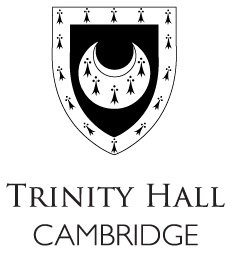
Best Poster Award, 3rd place
Issued by RESUS Repetition Suppression Summer School, for the poster ‘Glutamate and BOLD dynamics in a repetition suppression paradigm’.
Doctoral scholarship
UK Ministry of Defence, Dstl, fully funded 3-year scholarship. Issued by Bangor University.
Level 4 Professional Development Award
Issued by The City and Guilds of London Institute, in the context of Web Development.
Doctoral scholarship (tuition fee)
Issued by Riga Technical University
MSc. ing. tuition fee
Latvian government-funded tuition fee for MS. ing. studies. Issued by Latvian Government, due to excellent grades in BSc. ing. studies.
BSc. ing. tuition fee
Latvian government-funded tuition fee for BSc. ing. studies. Issued by Latvian Government, due to excellent Secondary school (A level) grades.
